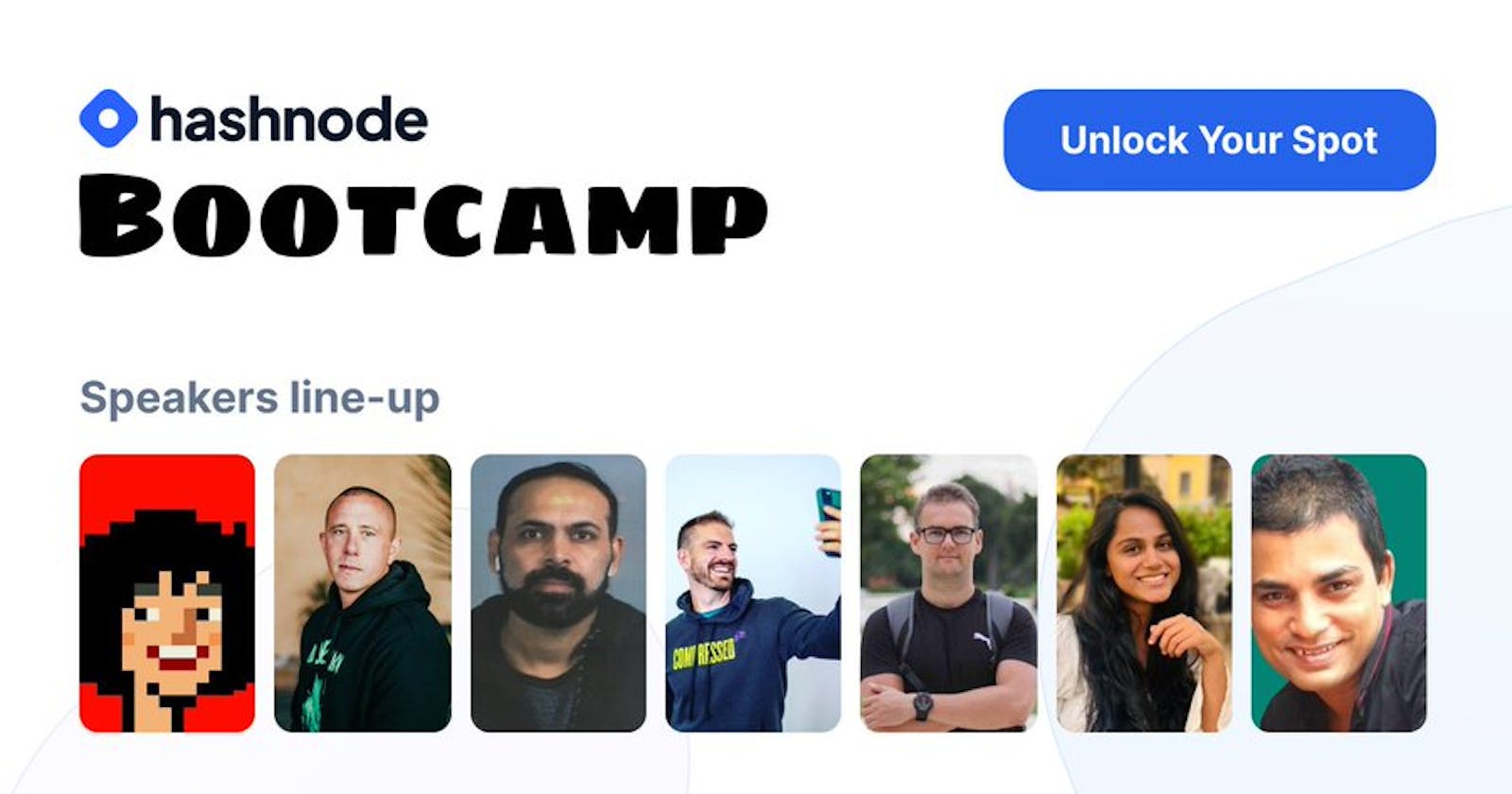Hashnode Bootcamp 2023 — Day 2: A summary on Building Personal Brand on Social Media & Monetizing it
So, on May 2, 2023, we proceeded to attend the second day of the Bootcamp which mainly focused on utilising the power of social media to gain engagement, build personal brand and eventually use it for monetizing the content you produce. I'm writing this blog to share my takeaways from this informative session.
As always, Dani Passos welcomed us with a warm introduction to the session. The speakers for the day were:
Nader Dabit — Self-taught coder, Director of Developer Relations at Aave Protocols
Ákos Kőműves — Software Engineer, ex-CTO, Technical Writer
Session 1: Leveraging Social Media for Monetization
Nader introduced us to different ways of how we can profit off of our content, not only by the help of the content solely, but also by utilising our profile to gather audience and monetizing our social media presence.
Personal branding
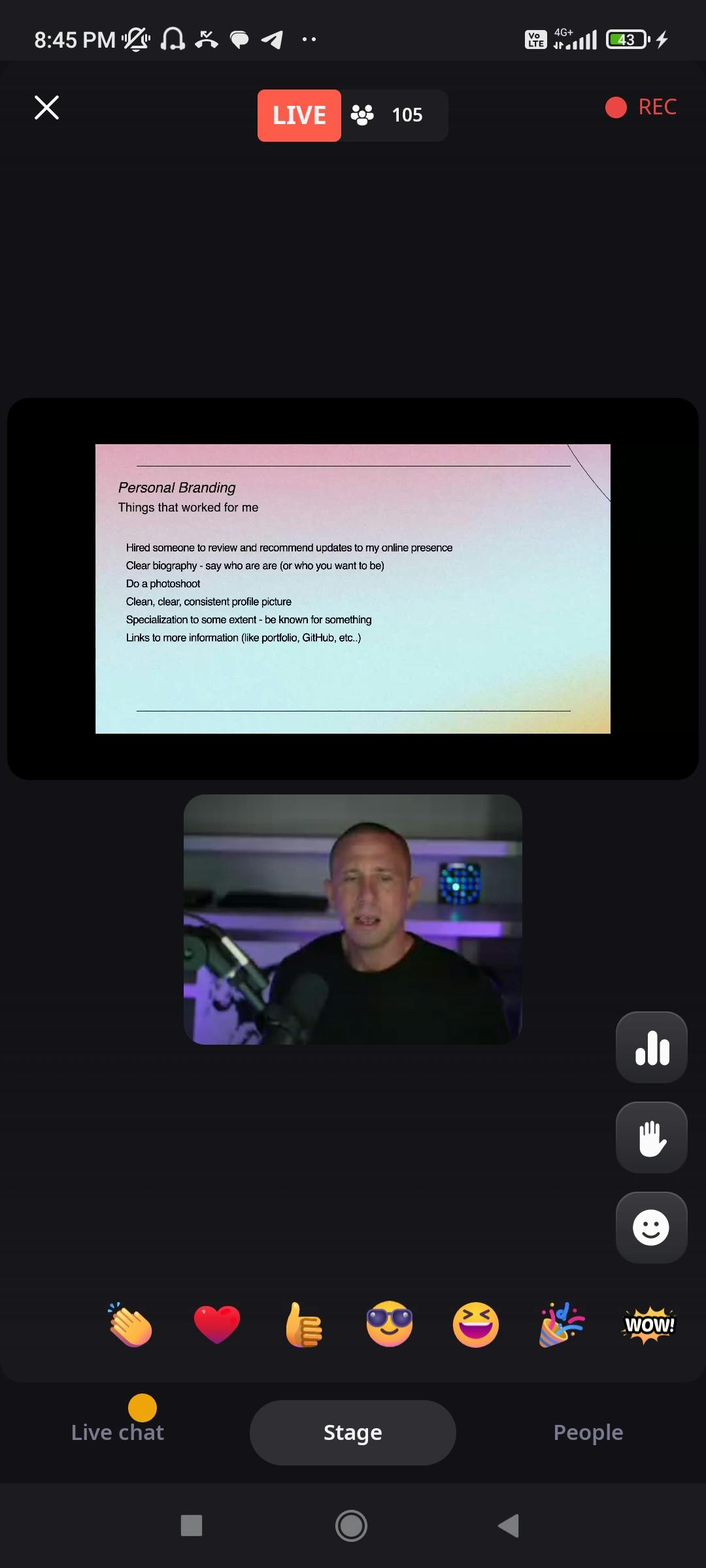
🔹He specified that personal branding and the ways to achieve that differs from person to person depending on the audience that they are catering to, however there are certain points that worked for him:
• Clear biography of who you are or aspire to be.
• Define yourself with emphasis on what technology you use, your hard skills and other things that set you apart.
• Understand that the more specialised you are in a specific domain or with a particular tool, the more probable you are to stand out.
• Backlink social media profiles as a tactic to hold the attention of your audience and utilise it to generate impressions.
🔹He also explained how to optimize a profile to cater to a time-constrained audience.
We have all heard of the seven-second rule of how recruiters skim through the resume of a candidate to scan the most important information. In an era, where most of the content that is consumed on social media is short form and always auto-rolling, it is becoming rather difficult to keep the audience on their toes with the long-form content. So it is important to optimise your profile, website/portfolio and your content in a manner that doesn't take too much time away from the audience, and doesn't leave them with a feeling of "time spent unworthily".
Point to remember: Bullets over paragraphs, anytime. Bullet points make each of your point precise and your content less congested than usual, which is a great way to retain attention.
🔹Be Personalized and cater to a Niche.
In a platform brimming with beginners ready to take up new challenges every now and then, try to stick to a specific domain or tool that you can continuously practice to gain specialization. It is not wrong to explore and be "the Jack of all trades" but when you become the "Master of One", people tend to take your advice more seriously and reach out to you for any help. Also, both of these are definitely better choices as compared to being the "Master of None".
Online presence / Social Media tips
Nader also shared some social media tips to gain a significant online presence and impressions.
• Build and learn in public. That gives you an opportunity to grow in public, with public.
• Staying consistent is the key to success most of the times. It's okay to put a little bit extra effort sometimes.
• Be helpful (without expecting anything in return). You end up building high-quality relationships.
• Be authentic.
• Be active and engaging. Find influential people and engage with them.
• Backlink social media profiles.
• Use rich media content.
Nader also gave an example of the recently publicly released Twitter recommendation algorithm and how it favors tweets with images and video more than just plain text.
• If you feel uncomfortable or cringe, you’re probably doing something right.
• Be mindful of the formatting you use. Try to make it scannable.
• Leverage other people's networks and audiences by collaborating and engaging with them.
• Mix things when required: Draw inspiration from existing ideas and combine that with your own innovation.
• Create resources for yourself. (As Taylor Swift famously said, "You're on your own, kid!")
Q&A
Then followed the Q&A session in which Nader answered a really crucial question with regard to monetization of personal brands.
• Is ad revenue worth adding, since it reduces the quality of the blog? Please suggest some alternatives for it.
Ans-
Ad revenue often hinder the seamless experience of readers or audience when they're going through your content. This can affect the reader traffic. Therefore instead of ads, you can opt for sponsored content writing, collaboration with different organisations, and other ways to monetize without affecting the experience of the readers.
• What are some creative ways for bloggers to monetize their social media presence beyond traditional sponsorships and ads?
Ans-
Nader suggested the idea of opting for a consultant role in tech companies. The best way to become a consultant is to approach them by saying - "You would be the person who would write technical content for them and you would charge X amount every month." This is one of the best and direct approaches to becoming a consultant at a company.
Session 2: Building Your Personal Brand on Social Media
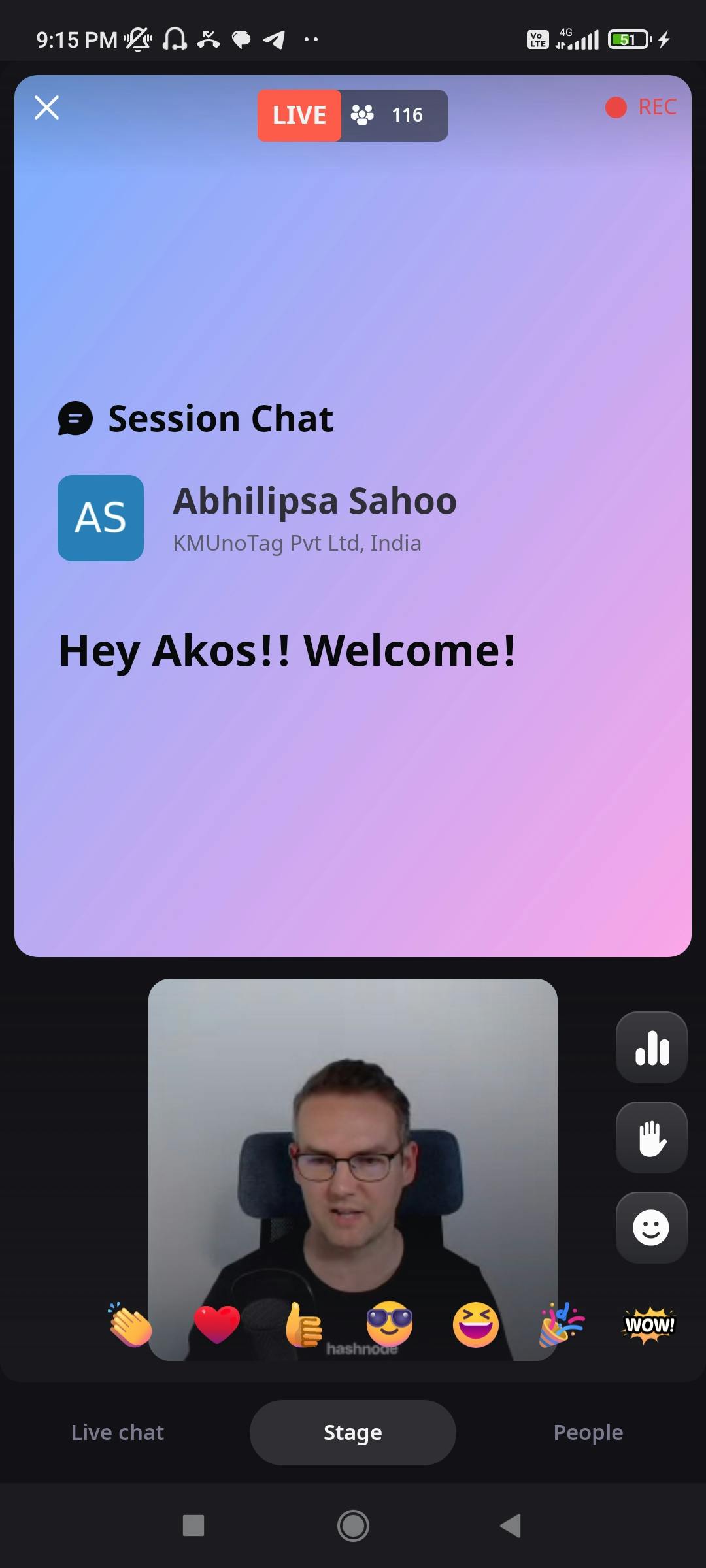
Ákos began with the why's of building a personal brand, and what significance it holds. He explained the four major reasons behind it:
• Simple tools
• Simple to build
• No competition
• No rules
He analysed each of these points patiently. Let's break them down.
- Simple tools:
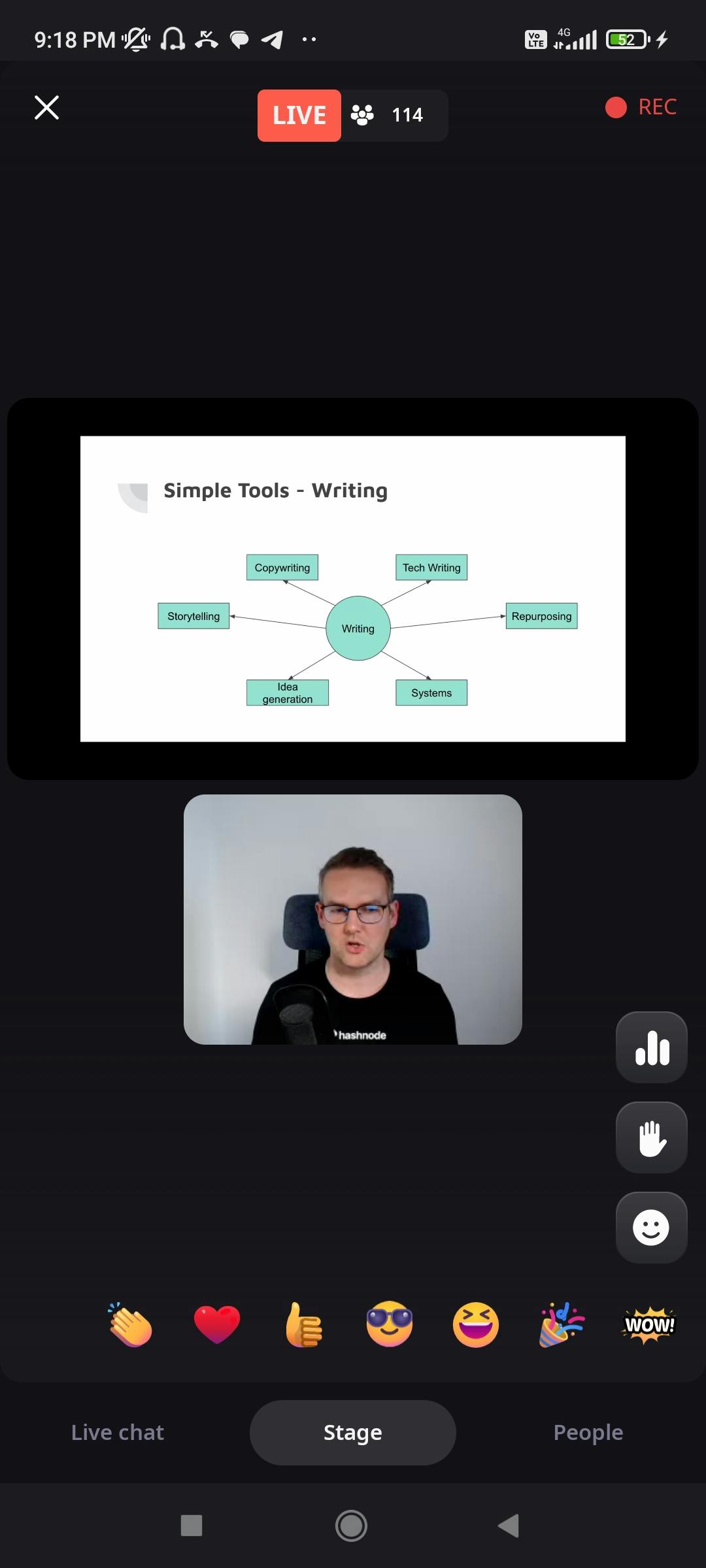
The simplest and most powerful tool that we can utilise is "Writing". There are so many ways to do so:
Copywriting, Tech Writing, Repurposing, Storytelling, Idea generation, etc.
- Simple to build:
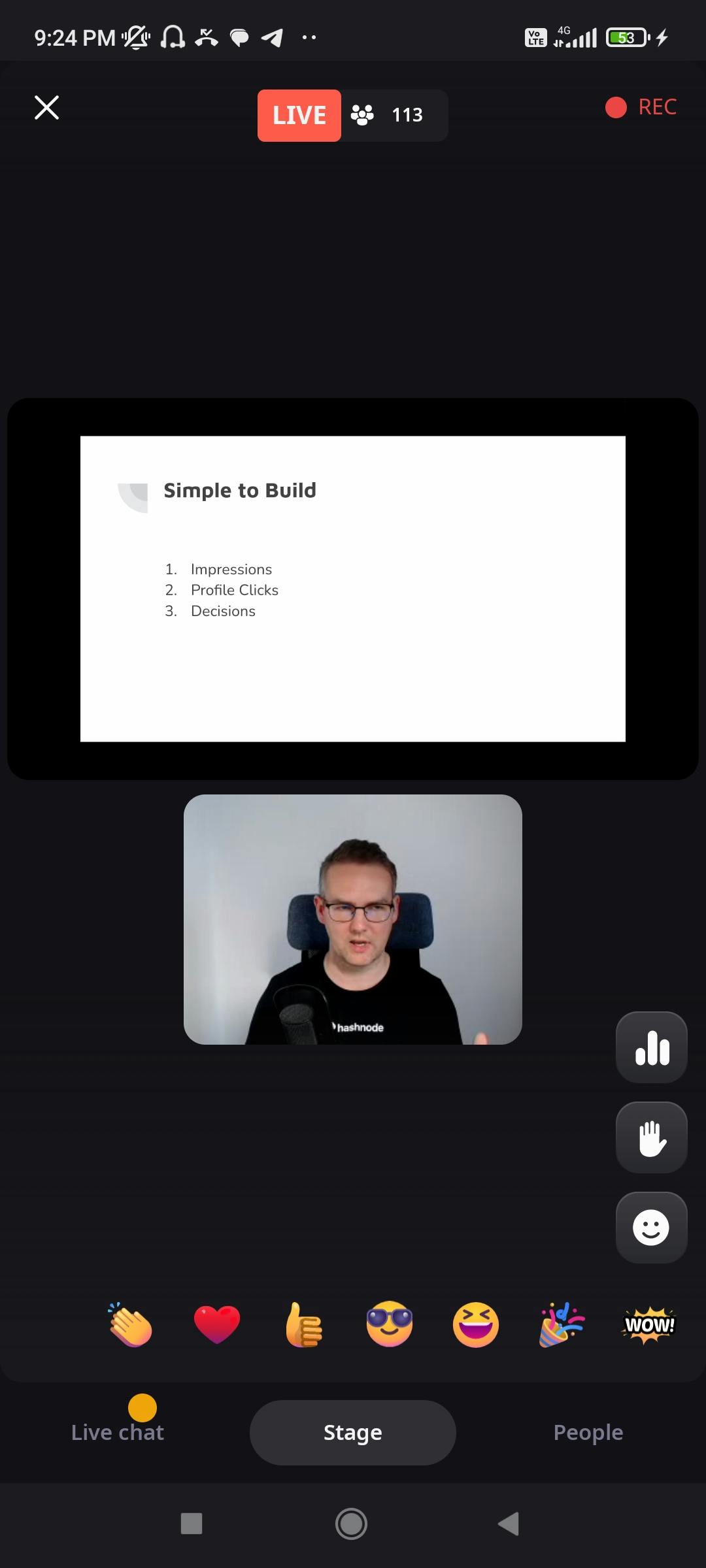
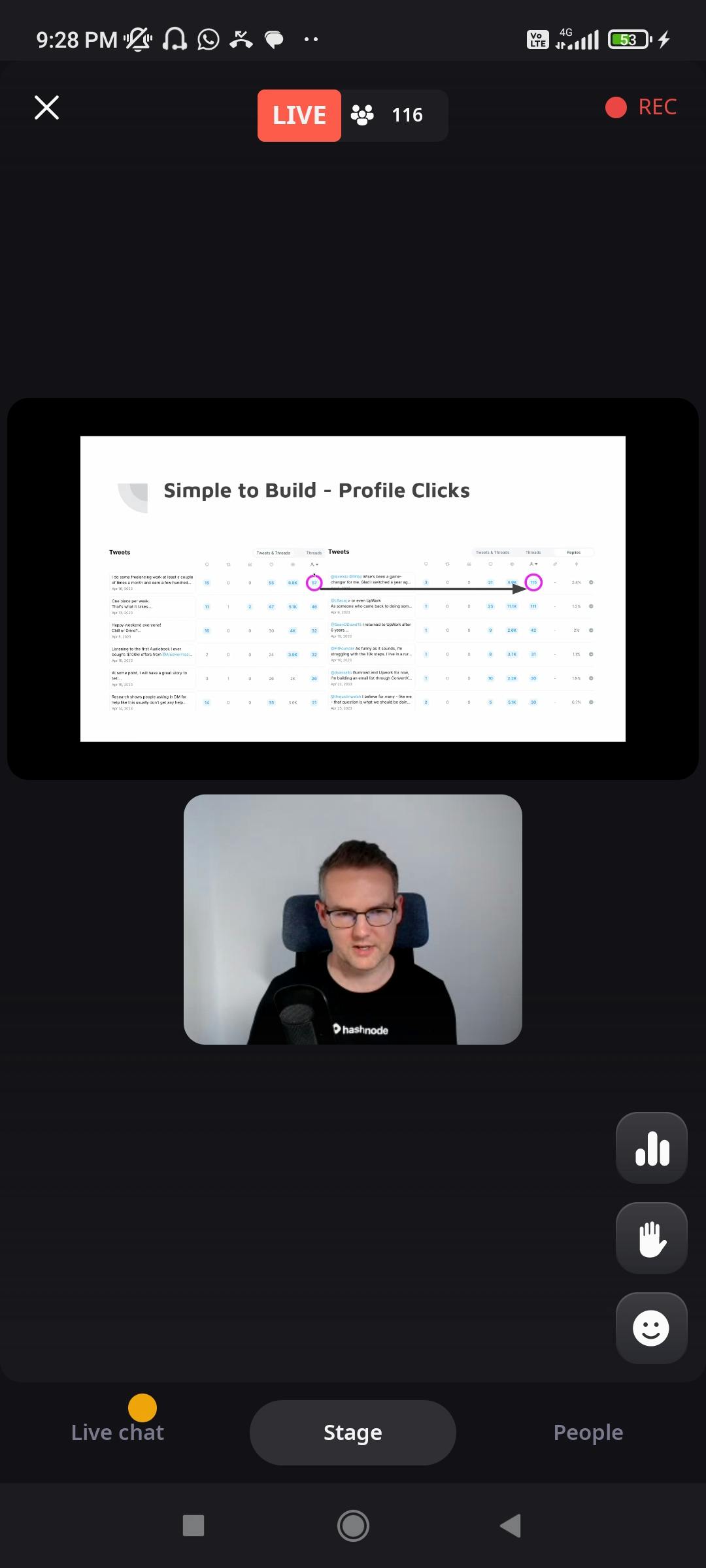
• Impressions:
Analyse your audience — whether they like long form or short form content — and then post your content. Analyse the quality of the content, introspect yourself on what you put out and whether you genuinely like the content you're producing, or if it should be better.
• Profile Clicks
Lifecycle of your audience:
See your content —> Decide whether they want to visit your profile —> Connect with you
When you start out for the first time, it will definitely be difficult to garner impressions. So one way to gather impressions is to engage meaningfully with fellow developers who already have a huge audience. Jump into discussions and leave a mark with your ideas in order to borrow their audience.
Negative remarks or comments leave a permanent impression on people, so try to stay courteous and curious.
• Decisions
No matter the optimization, your impressions depend on the decision of your audience. Some content creators also use clickbait-y or ironic titles to engage their audience, however it is not recommended for beginners to practice.
- No competition in Personal Branding
What people forget is that every individual is different from the other. Don't put out ton of stuff without giving a personal touch. Engage organically and occasionally tell people your stories and daily activities to make yourself seem relatable to your audience, and that you too are a Person in the "Personal Branding".
- No Rules
If you run into copycat behaviour, wherein your content is being borrowed or stolen without your personal approval, don't get upset, just ignore. Ignore the trolls as well, as they try to hinder your peace of mind and productivity.
Don't rely on algorithms and changing systems. Adapt to them and prepare to deal with their unpredictability.
Dani (our host) also goes on to say a pivotal line - "People can steal your tweets, but they can't steal your audience." They can't steal your authenticity and personality. When you're not yourself a copy, you don't need to worry about the other copies.
In the end, Akos advises us to enjoy the Positive Sum game. He reminds us to enjoy the personal branding game. Teach, learn and grow in public. Treat social media as your own public record or journal of learnings.
Conclusion
It was indeed a delightful session, to learn about the speakers' own journeys, and to put ourselves in their shoes, look at the intersection of technical writing and personal branding from a fresh perspective.

